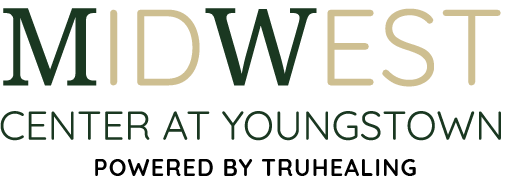Millions of people across the country suffer from co-occurring mental illness and addiction. Mental health conditions can be one of the top contributors to developing an addiction to drugs or alcohol. However, you are not necessarily exempt from addiction if you do not suffer from mental health problems. Mental health and addiction have a very close relationship, so it is helpful to be aware of the connection to decrease the risk of addiction for yourself and your loved ones.
At Midwest Center at Youngstown, we understand the close connection between mental health and addiction, so we provide dual diagnosis treatment in Ohio to help you experience a full recovery. We treat the whole person, mind and body, so you come out of treatment with a new lease on life. To learn more about our dual diagnosis treatment plans, call us today at 844.544.0502.
How Are Mental Health and Addiction Connected?
Many people with mental health conditions develop an addiction while just as many people with substance use disorders have a mental health condition that existed prior to or after the addiction started.
A mental health condition can make you much more likely to self-medicate with drugs or alcohol and eventually develop an addiction. On the other hand, a person with no existing mental health conditions can choose to use drugs or alcohol for other reasons and become addicted, then develop a mental health condition due to the changes in the brain caused by addiction. Overall, mental health conditions, especially serious mental health illnesses, are more often the antagonist than the other way around.
Some of the mental health disorders most often associated with addiction are:
- Borderline personality disorder
- Generalized anxiety disorder
- Panic disorder
- Post-traumatic stress disorder (PTSD)
- Attention-deficit hyperactivity disorder (ADHD)
- Depression
- Bipolar disorder
- Schizophrenia
Of the above, major depression, schizophrenia, and bipolar disorder are the most likely to co-occur with addiction. Evidence suggests that identifying and treating mental health conditions early in life can help decrease drug and alcohol addiction risk in adulthood. More awareness of childhood mental health issues is needed to make this change.
How Does Mental Health and Addiction Treatment Work?
If you are suffering from addiction and a co-occurring mental health condition, you will benefit most from a dual diagnosis treatment program. Dual diagnosis simply means that you are diagnosed with both a mental health condition and substance use disorder. This diagnosis is crucial to getting you with the right care from a treatment center. Here are some things to know about dual diagnosis treatment:
- It is more effective than treatment for substance use alone. Untreated mental illness can lead to relapse since the core issue has not been addressed.
- Treating mental health and addiction together can be more effective for managing symptoms. It can be challenging to know which symptoms are related to your mental health and which are due to your addiction, so it is best to tackle both at the same.
- It will include a customized combination of medication and therapy to help you get through withdrawal, improve cognitive function, learn healthy coping skills, and work through distorted thought patterns that keep you stuck.
To fully heal your life, you need the right mental health and addiction treatment. A dual diagnosis treatment program will provide the best chance of a full and lasting recovery.
Midwest Center at Youngstown: Helping Our Community Heal from Addiction
At Midwest Center at Youngstown, we realize how challenging it can be to get clean when you suffer from addiction with co-occurring mental health disorders. We are here for you when your mental health and addiction interfere with your health and happiness. For the best dual diagnosis in Ohio, call us today at 844.544.0502.

